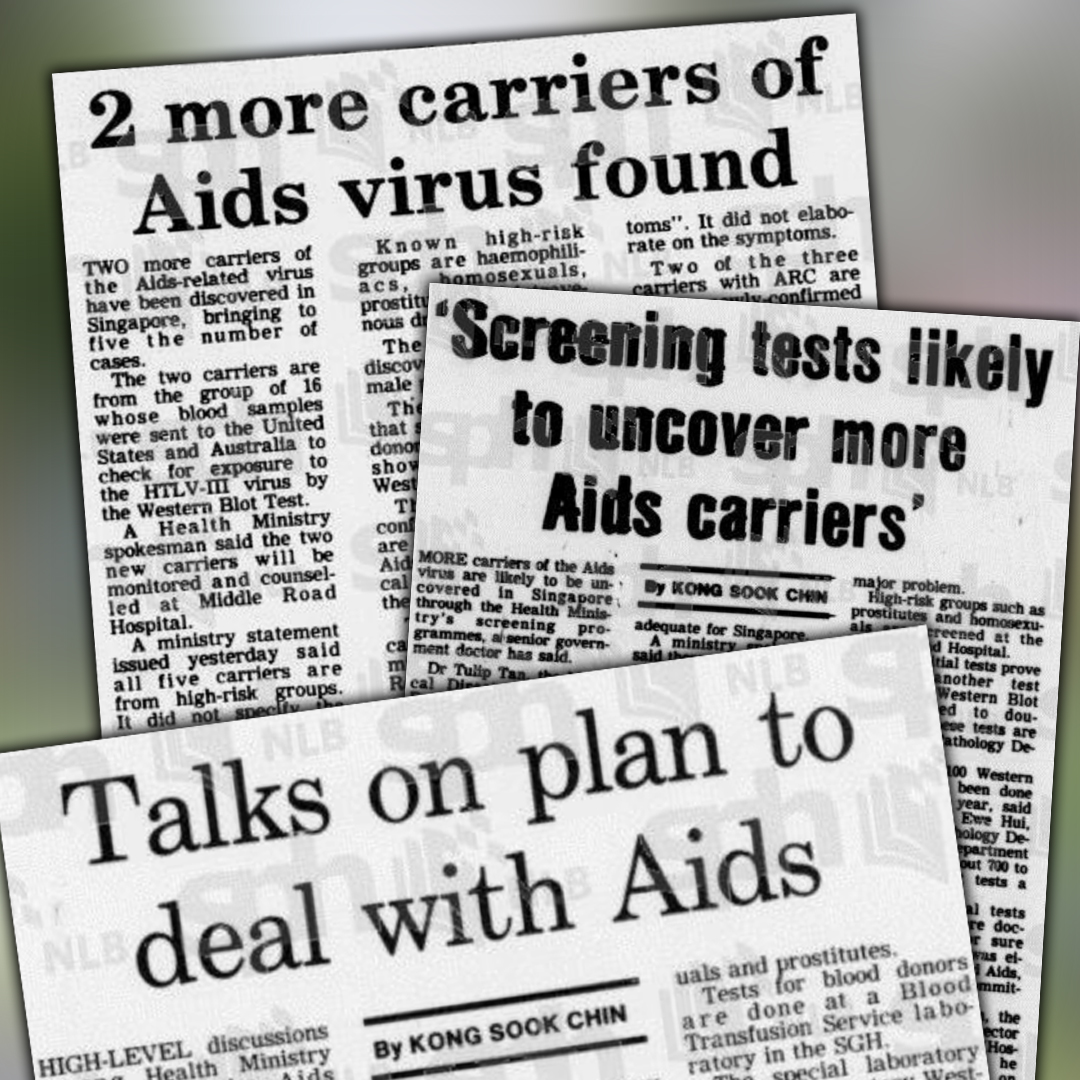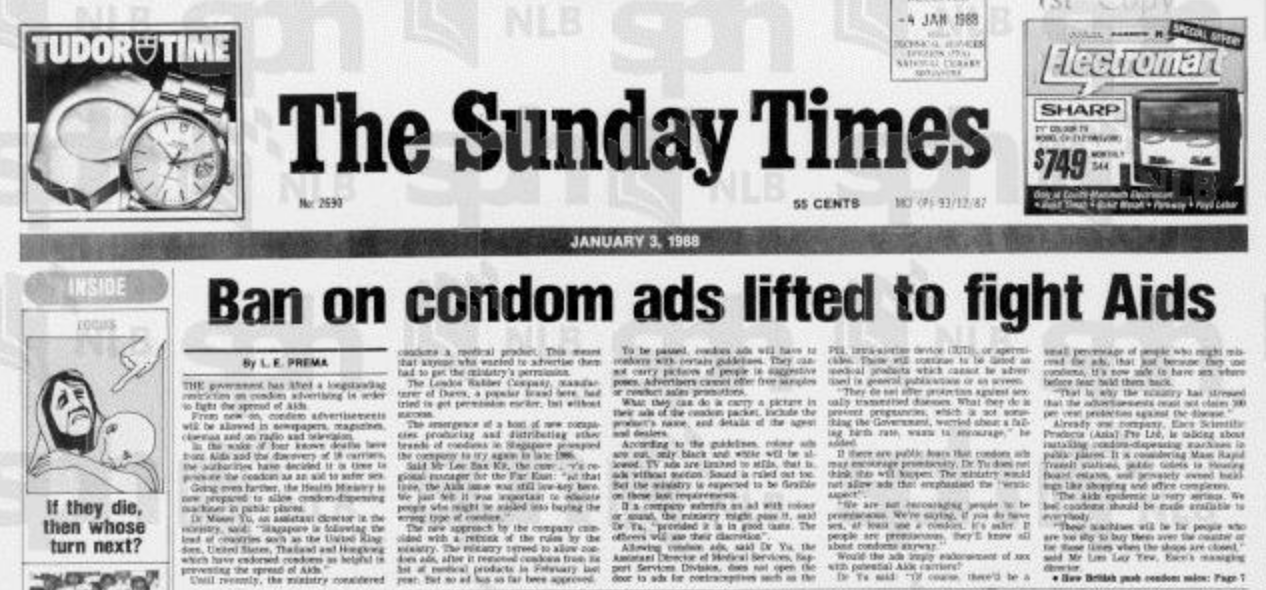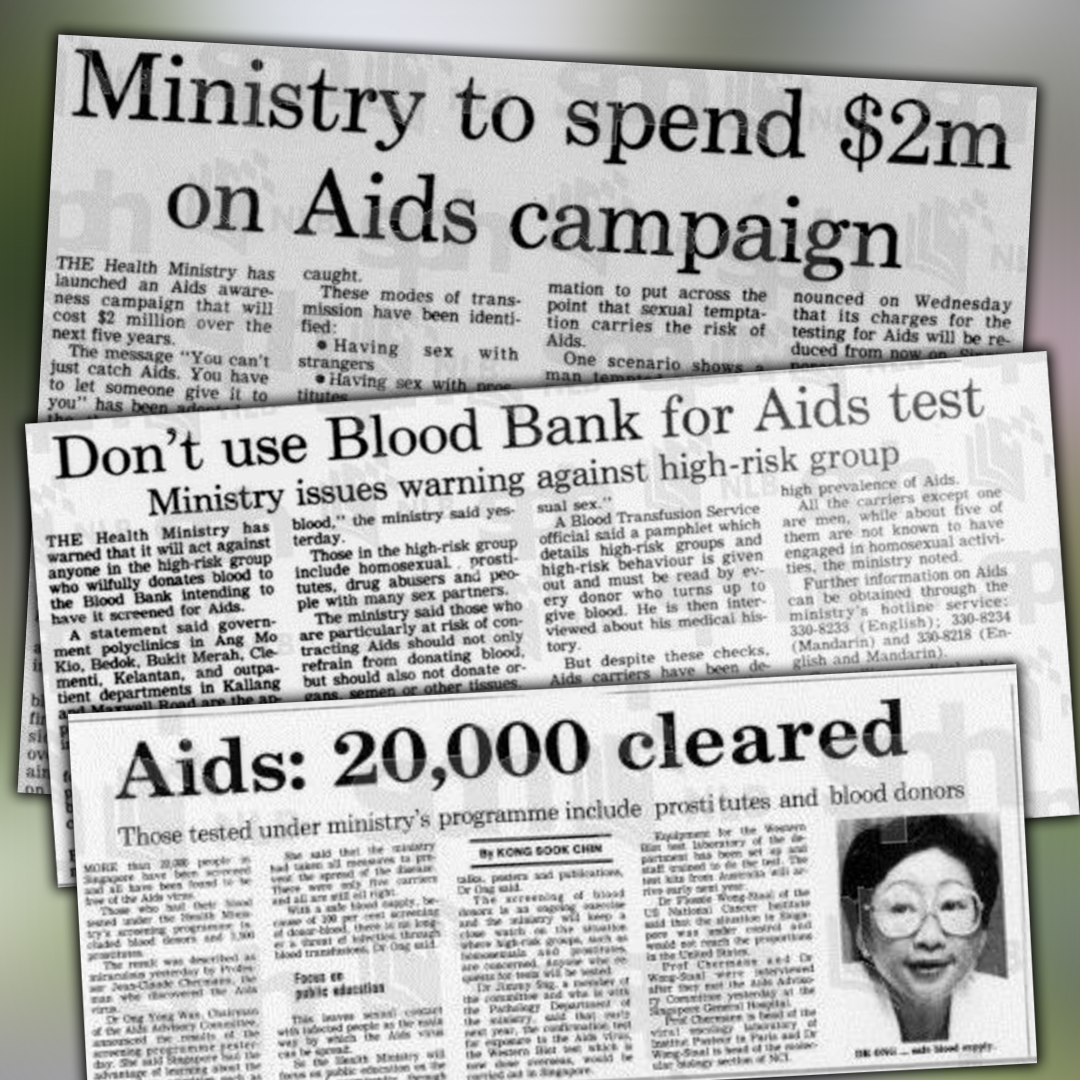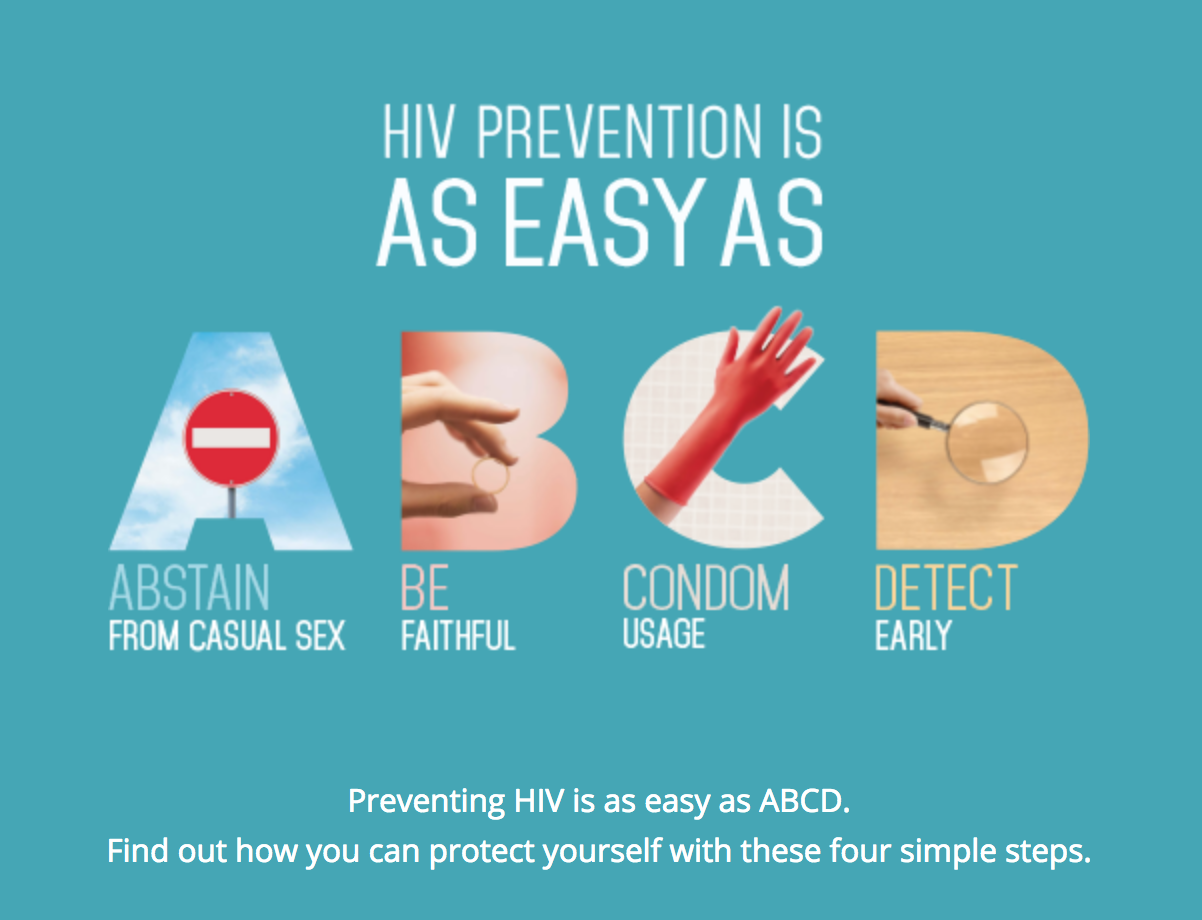HIV — human immunodeficiency virus. It's one of those things we just don't really talk about in Singapore, where our health systems are renowned and advanced, and where squeaky-cleanliness forms a big part of our nation-state's image.
So sensitive and stigmatised it is, that over the decades of Singapore's independence, understanding of it and how it is spread has all but disappeared, even among an educated public — but the fact is, there continues to be about 400-plus people who are diagnosed with it every year.
In 2016, for instance, 408 new cases of human immunodeficiency virus (HIV) infections were reported among Singapore residents. This is actually a drop from the roughly-450 each year we have seen over the past decade.
According to the Ministry of Health (MOH), Singapore had 5,660 residents living with HIV as of end 2016. And in the first 10 months of 2017, there were 361 new HIV cases reported.
The reason the government is able to keep track of people with HIV is the fact that newly-diagnosed cases must be reported to MOH within 72 hours of diagnosis.
This is courtesy of a little piece of legislation called the Infectious Disease Act (IDA). This law, by the way, makes it a crime for HIV-positive persons to infect others deliberately.
But just in case you are among the folks not too familiar with the virus and how it's spread, here's a quick check-in for you:
What is HIV?
The human immunodeficiency virus (HIV) targets and destroys human immune cells. The virus also uses these immune cells to replicate itself, i.e. turn them into more viruses.
HIV is spread only through blood, semen, pre-seminal fluid, rectal fluid, vaginal fluid and breastmilk. It can also be spread when injection needles are shared between HIV and non-HIV sufferers.
With the immune system down, the body is susceptible to various infections which in a normal, healthy body, would be easy to overcome.
Left untreated, an HIV infection eventually progresses to Acquired Immunodeficiency Syndrome (AIDS), where the body's immune system is so severely compromised that a simple viral infection (like a flu) can be fatal.
Treatment for HIV involves taking drugs that prevent the virus from replicating. The medication can only help suppress the virus level to a minimum, but never completely eradicate it from the body. Treatment also prevents the condition from progressing to an advanced stage, and to full-blown AIDS.
[related_story]
The history of HIV and AIDS is relatively short, one might be surprised to discover. Worldwide, the disease and virus were only discovered in the early 1980s, while here in Singapore, both arrived on our shores not long after.
Singapore's first reported AIDS patient in May 1985
By the end of 1985, every region in the world had at least one reported AIDS case. For us, that first case was diagnosed in May.
According to a Straits Times report on May 18, 1985, Singapore's first AIDS patient showed Kaposi's Sarcoma symptoms — a form of cancer common in advanced stages of HIV and full-blown AIDS.
Kaposi's Sarcoma is manifested in purple lesions that appear all over a sufferer's body (images of this are too graphic for us to show you here, but you can Google them if you're interested).

After news broke of our first HIV-positive case, media in Singapore went into a frenzy.
One newspape herer reported that in 1986, a man successfully robbed a store of a day's earnings by threatening its owner with a hypodermic syringe saying, "I've got AIDS. Open the till or I'll stick this into you."
Mass screenings were held for groups that were perceived to be at-risk, in particular haemophiliacs (people whose blood cannot clot), prostitutes, people with multiple sexual partners, and homosexuals.

National AIDS Control Programme
And of course, the government knew it had to move quickly and strongly to deal with this. It developed a National AIDS Control Programme (NACP), which started off with a hefty S$2 million spent on awareness programmes.
It also saw the establishment of counselling services, and the opening of testing centres in Bedok, Bukit Merah, Ang Mo Kio, Clementi and Kelantan Road polyclinics. Radio and television advertisements also broadcasted anti-AIDS messaging.
Law amended to include HIV
The IDA was amended to include HIV infection as a notifiable disease (meaning the government must be notified of any new infections in Singapore) in 1985. A provision was also added to make it a crime for an HIV-positive person to spread the virus.
It might sound jarring and harsh on people who already suffer from the stigma and the lifelong condition, but a separate clause in the IDA also protects people who are living with HIV. Did you know that it is a crime for a person who knows of anyone living with HIV (or any infectious diseases for that matter) to tell anyone else that they have it without the sufferer's permission?
The government also lifted a ban on condom advertisements -- previously enforced to counter falling birth rates. According to The Sunday Times, the authorities even considered placing condom-dispensing machines in public.

Perhaps in conjunction with this, a condom certification scheme was introduced in 1992 to make sure that condoms imported into Singapore met international and local standards.
The NACP also conducted screening of the national blood supply, as well as contact tracing for newly-reported HIV cases to monitor the spread of the disease.

At the same time in the late 1980s, because the disease was new and fatal, HIV-positive foreigners were barred from entering Singapore. They were blacklisted at immigration and repatriated.
This ban was semi-lifted only about 30 years later, in April 2015. HIV-positive foreigners are now allowed to enter Singapore, but only on short-term passes. Even now, unfortunately, they are still not allowed to stay in Singapore for long-term purposes such as work (they cannot hold employment passes) or even to accompany a minor.
All that being said, one might question the overall effectiveness of the government's efforts given that the number of new HIV cases in Singapore has continued to increase at a steady pace over the years — even if its absolute numbers are not very high.
More recently in 2012, the Health Promotion Board (HPB) devised four steps with the acronym (yes, so-Singaporean to do so) "ABCD" — Abstain from casual sex, Be faithful, Condom usage and Detect early — and introduced some neat posters to spread awareness about the importance of HIV prevention and early detection.

So now you know.
All newspaper clippings from NewspaperSG.
If you like what you read, follow us on Facebook, Instagram, Twitter and Telegram to get the latest updates.
